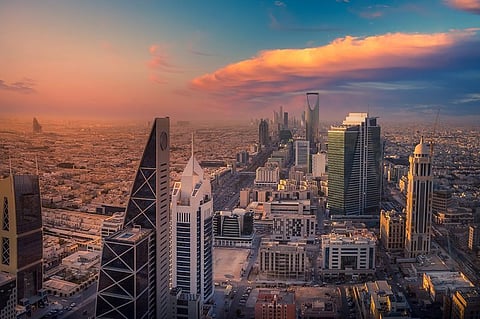Saudi Arabia’s summer to begin on June 1 amid high temperature warnings
June 1 will mark the start of a gradual temperature increase across multiple regions

Dubai: The National Center of Meteorology (NMC) announced that the meteorological summer in Saudi Arabia will officially begin on June 1. This date marks the start of a steady rise in temperatures across the Kingdom, according to the Saudi Gazette.
NMC spokesperson Hussein Al Qahtani revealed that Jeddah recorded the highest temperature in the country on Tuesday, reaching a scorching 47°C in the shade. He said this early spike reflects the intensifying summer heat, particularly in the western regions of Saudi Arabia.
The NMC is fully equipped to handle summer forecasts using advanced meteorological technologies. These include weather radars, satellite imagery, the Saudi numerical model, manned observatories, and mobile automatic stations that operate 24/7 to ensure accurate weather predictions.
Today’s forecast: High heat and dust storms
The center has forecast high temperatures for the Eastern Region today, with dust-stirring winds expected in parts of Tabuk, Hail, and Madinah.
Red Sea: Northwesterly to northerly winds at 20–45 km/hr; waves ranging from 1 to 2.5 meters.
Arabian Gulf: Southwesterly to northwesterly winds at 20–40 km/hr waves ranging from 1 to 2 meters.
Summer officially starts in UAE on June 21
The summer solstice, falling on June 21, will mark the official start of summer in the UAE and the longest day of the year in terms of daylight. While the solstice is a key astronomical milestone, it doesn’t always coincide with peak heat.
During the solstice, the Sun will be directly overhead the Tropic of Cancer (23.37°N), which passes through the UAE. This alignment results in the longest daylight hours of the year for the Northern Hemisphere.
Oman: Record-high temperatures expected
Oman is currently experiencing extreme heatwaves, with temperatures nearing record levels in several regions, including North and South Batinah, Dhahirah, North Sharqiyah, and Al Wusta.
To protect workers, the government has enforced a midday work ban from 12:30 p.m. to 3:30 p.m., effective from June through August. Companies found violating this regulation will face penalties.
The Ministry has also launched the ‘Safe Summer’ campaign to raise awareness about heat stress and promote compliance with safety measures. Residents are advised to stay indoors during peak heat hours and avoid direct sun exposure.
Kuwait: Dust storms likely to increase this summer
Kuwait is bracing for a summer marked by increased dust storms, driven by prolonged drought, reduced rainfall, and intensified wind activity, a meteorologist has warned.
The lack of rainfall has resulted in loose topsoil and reduced desert vegetation, making the environment more vulnerable to wind-driven dust— even under moderate wind conditions.
Health authorities have advised residents, especially those with asthma and allergies, to wear face masks outdoors as a precaution against worsening air quality and respiratory risks.
Sign up for the Daily Briefing
Get the latest news and updates straight to your inbox








